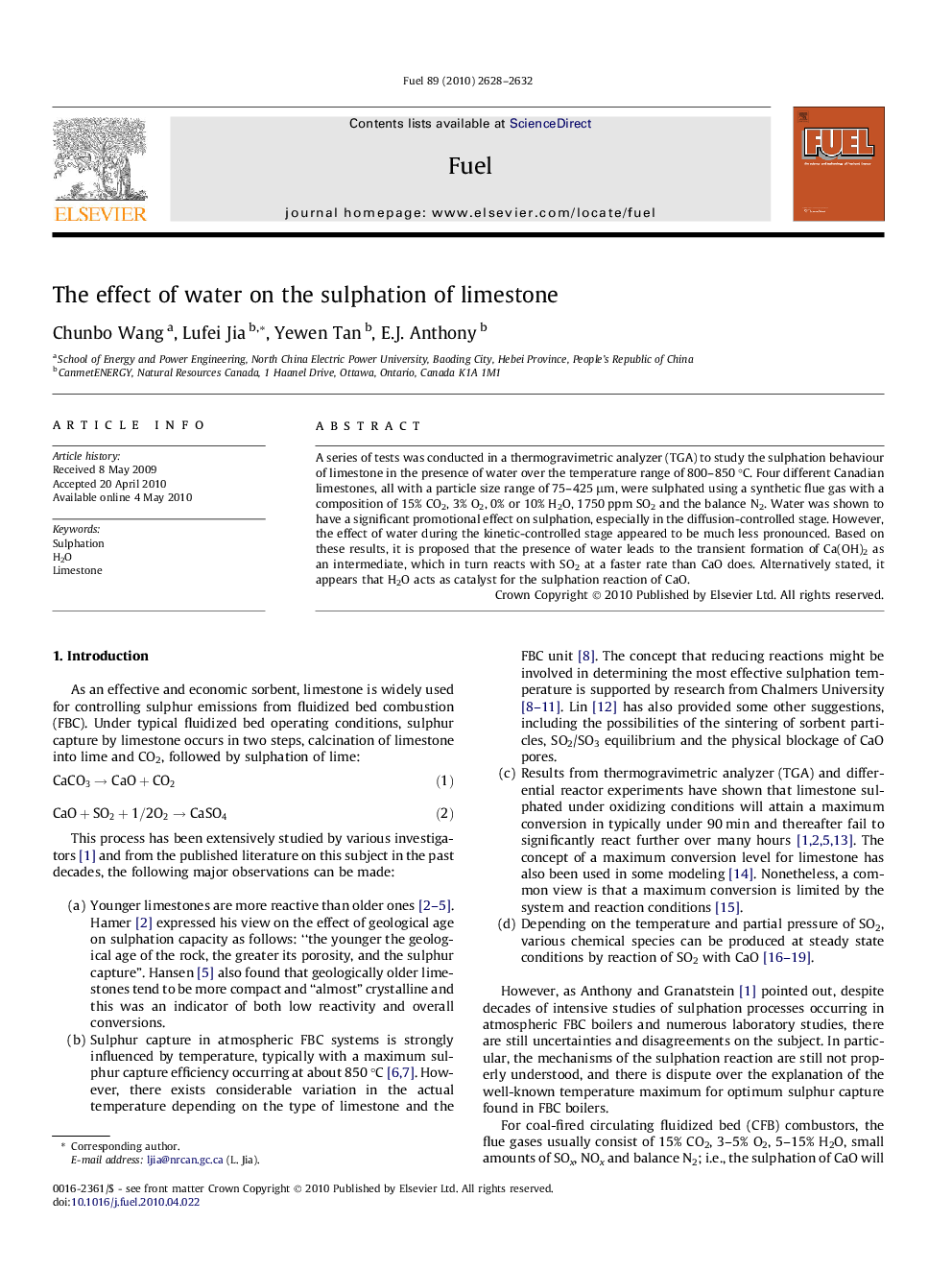| Article ID | Journal | Published Year | Pages | File Type |
|---|---|---|---|---|
| 207099 | Fuel | 2010 | 5 Pages |
A series of tests was conducted in a thermogravimetric analyzer (TGA) to study the sulphation behaviour of limestone in the presence of water over the temperature range of 800–850 °C. Four different Canadian limestones, all with a particle size range of 75–425 μm, were sulphated using a synthetic flue gas with a composition of 15% CO2, 3% O2, 0% or 10% H2O, 1750 ppm SO2 and the balance N2. Water was shown to have a significant promotional effect on sulphation, especially in the diffusion-controlled stage. However, the effect of water during the kinetic-controlled stage appeared to be much less pronounced. Based on these results, it is proposed that the presence of water leads to the transient formation of Ca(OH)2 as an intermediate, which in turn reacts with SO2 at a faster rate than CaO does. Alternatively stated, it appears that H2O acts as catalyst for the sulphation reaction of CaO.
